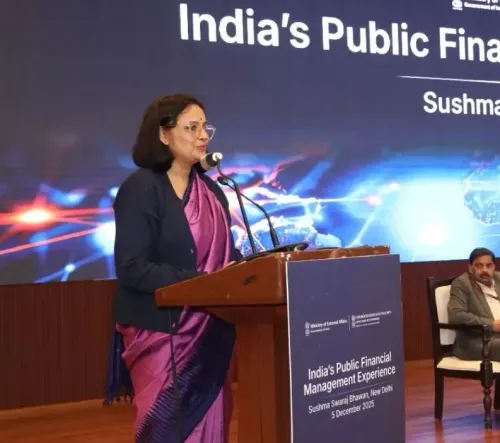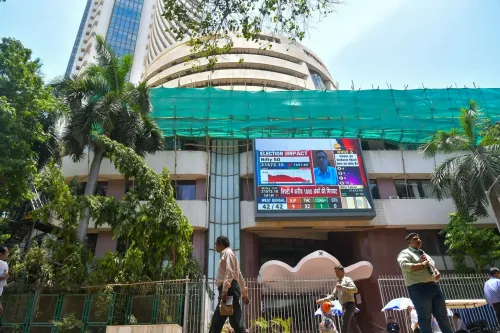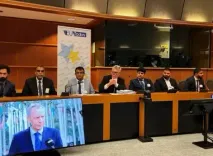Is the World Ready for the Shift from Digital to Quantum Economy? Insights from India's Cyber Agency

Synopsis
Key Takeaways
- Transitioning to a quantum economy is imminent.
- Quantum computing has profound implications for cybersecurity.
- Many organizations lack visibility into their current cryptographic systems.
- The threat of harvest now, decrypt later attacks is increasing.
- Robust measures are needed to ensure data protection.
New Delhi, July 11 (NationPress) The globe is poised on the brink of a significant evolution -- transitioning from a digital economy to a quantum economy, according to a recent report spearheaded by the Indian Computer Emergency Response Team (CERT-In) released on Friday.
This data, curated by India’s national cyber agency in collaboration with the global cybersecurity firm SISA, emphasizes that quantum computing is no longer merely a concept of the future but a looming reality with profound consequences for cybersecurity and digital infrastructure.
Entitled ‘Transitioning to Quantum Cyber Readiness’, the report highlights that quantum computers, which operate on the principles of quantum mechanics, are transitioning from research laboratories into practical applications.
Numerous global technology firms are making remarkable advancements in this field. For instance, Google’s Willow chip, unveiled in December 2024, achieved a milestone in error correction featuring 105 qubits.
Microsoft launched its Majorana-1 processor in February 2025, aspiring to enhance its capabilities to a million qubits.
IBM is targeting the development of fault-tolerant quantum systems by 2029, while Quantinuum has successfully created a 56-qubit trapped-ion quantum computer with unprecedented precision.
Even Nokia is advancing in the realm of quantum networking, as detailed in the report.
This report emerges at a pivotal moment, with the United Nations declaring 2025 as the International Year of Quantum Science and Technology, highlighting the seriousness with which the global community is approaching this shift.
The ecosystem surrounding quantum computing -- ranging from semiconductors to system software -- is expanding rapidly.
While the advantages of quantum computing are vast, it introduces substantial cybersecurity challenges, the report asserts.
Quantum computers have the potential to tackle intricate problems at speeds far greater than today's machines, which also means they could undermine existing encryption standards.
Encryption algorithms like RSA, extensively utilized for securing financial transactions, messaging applications, digital signatures, and even blockchain systems, could be easily compromised.
This scenario could result in extensive data breaches, jeopardizing the very foundation of the digital economy.
The report cautions about a particularly menacing threat: “harvest now, decrypt later” attacks.
In these instances, cybercriminals gather encrypted data today and wait for the advent of quantum computers to decrypt it in the future.
Such vulnerabilities endanger financial information, health records, secure communications, and cryptocurrencies.
Another concern raised in the report is that many organizations still lack clear insight into their existing cryptographic systems.
In a future that necessitates post-quantum cryptography, these blind spots could be catastrophic.










